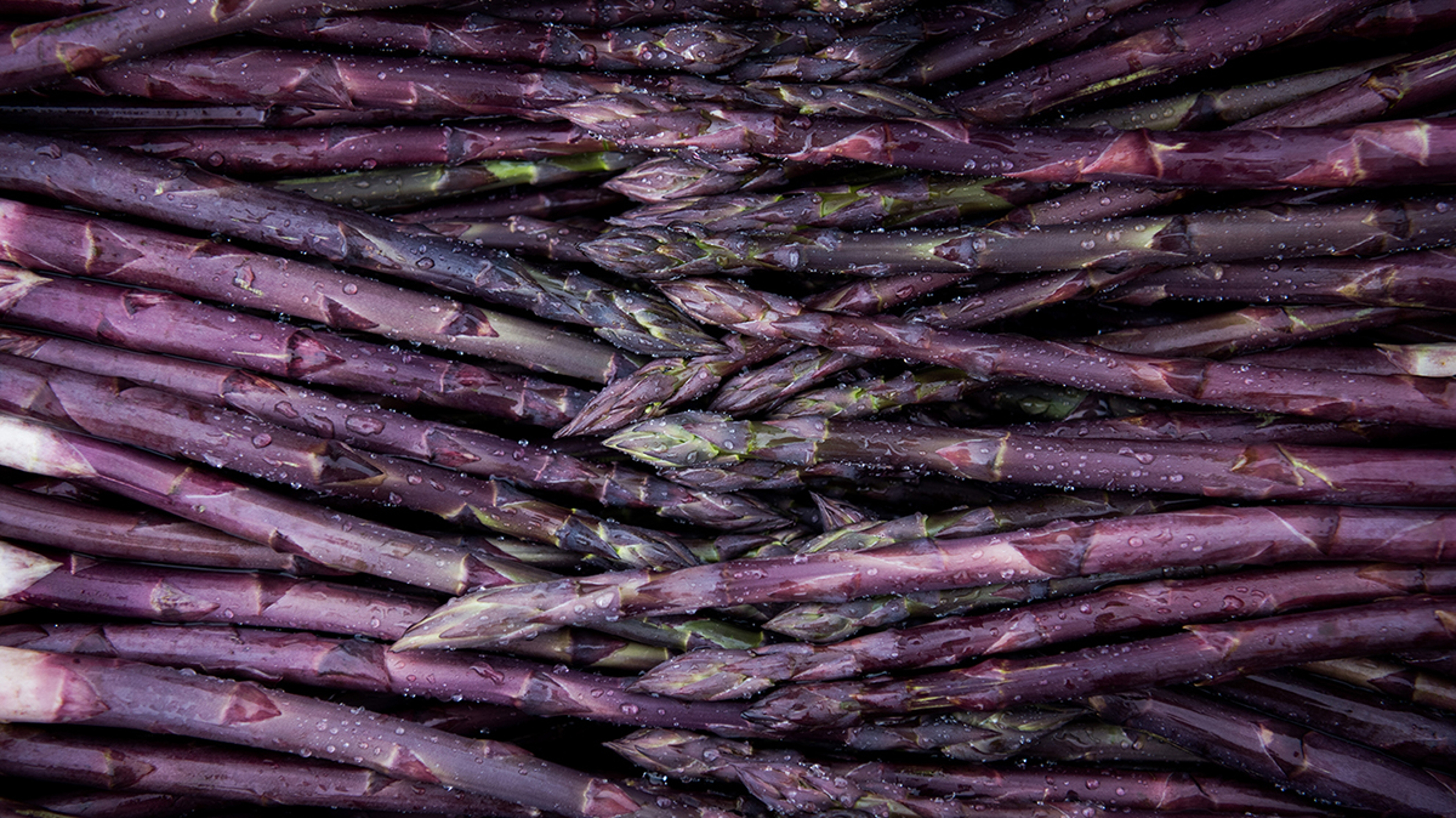The excitement is palpable at the renowned Chef's Garden, where tender shoots of asparagus are popping through the fertile, rich, sandy loam — a sure sign of spring! "We've been eating winter vegetables for months, and asparagus is one of the first vegetables to burst forth," says Farmer Lee Jones, the face of the family-owned farm.
You can order your box of Chef's Garden Mixed Asparagus now from Harry & David, but be warned: Someone else has dibs on the first taste of this cleansing green vegetable. "Mom always gets the first handful from the field," Farmer Lee laughs. "We scour and walk a five-acre patch to find that handful — the old timers called it a spring tonic because it helps pull the impurities out of your body as you eat it."

True that! Asparagus has, for centuries, been known as a natural diuretic.
Farmer Lee is an exemplar of regenerative farming techniques that are in accordance with Mother Nature, saying, "Just because we can purchase some produce items year-round doesn't mean we should necessarily be eating them out of season."
He adds: "Eating in season honors the rhythms of Mother Nature, and had been a way of life for millennia. Vegetables taste and smell better [when eaten in season], and they are richer in vitamins, minerals, and phytonutrients."
What makes Chef's Garden asparagus special?
Chef's Garden grows hearty asparagus in an array of colors, the most common being green and purple. But it also offers white and pink varietals. Farmer Lee explains: "There are no genetic modifications to these varietals of asparagus. Since the green color comes from chlorophyll, you can achieve a white color by blocking direct sunlight — the sweet corn and cabbage flavor profile of white asparagus is a delicacy in Europe."
The shoots are cut by hand, sorted by size and color in the field, and chilled before shipping. Depending on the color, the flavors range from nutty and earthy to deep and sweet, and the texture of each is perfectly crisp.
How to care for and store asparagus
When buying green asparagus, stalks should be rich in color, softly fading to white at the bottom of the stalk; dull color and wilting signal that the asparagus is no longer fresh. Keep asparagus moist from stem to tip, aka "the crown," to maintain freshness. You may wrap asparagus stalks in a damp paper towel or store the stalks upright in a bowl or glass of cold water, as you would flowers.
How to use asparagus
Steaming this veg is easy. At the Culinary Vegetable Institute — the Chef's Garden's educational and research facility dedicated to creatively cooking with the Jones family's nutrient-dense and sublimely flavorful vegetables — chefs lay the asparagus across a steaming rack to optimize its flavor. This gentle heating process makes asparagus' rich vitamin A and E antioxidants readily available for absorption.
You can also enjoy it raw by shaving it into salads for added texture, or folding cut asparagus into a luscious quiche or spring vegetable frittata. Roast asparagus with a mix of baby vegetables and serve them with a homemade yogurt dip, or enjoy roasted asparagus with eggs and hollandaise sauce. Fire up the grill, wrap the spears in bacon, and grill them until the bacon is crisp; the contrast of the sweet, earthy stalks with the salty, rich pork is divine. Sprinkle asparagus with Parmesan cheese and lemon zest, and roast in an oven at 400 degrees until the cheese melts and the thickest part of the stalk is tender, about 10 minutes. Farmer Lee recommends taking the asparagus, once roasted, and popping it under the broiler until the tips brown.
Though this versatile veggie is super delicious and nutritious, he does advise on how often we should eat it. Farmer Lee says, "When asparagus is in season, we should eat it three times a day. And when it's out of season, we should lust for it for 10 more months!"
.svg?q=70&width=384&auto=webp)



















